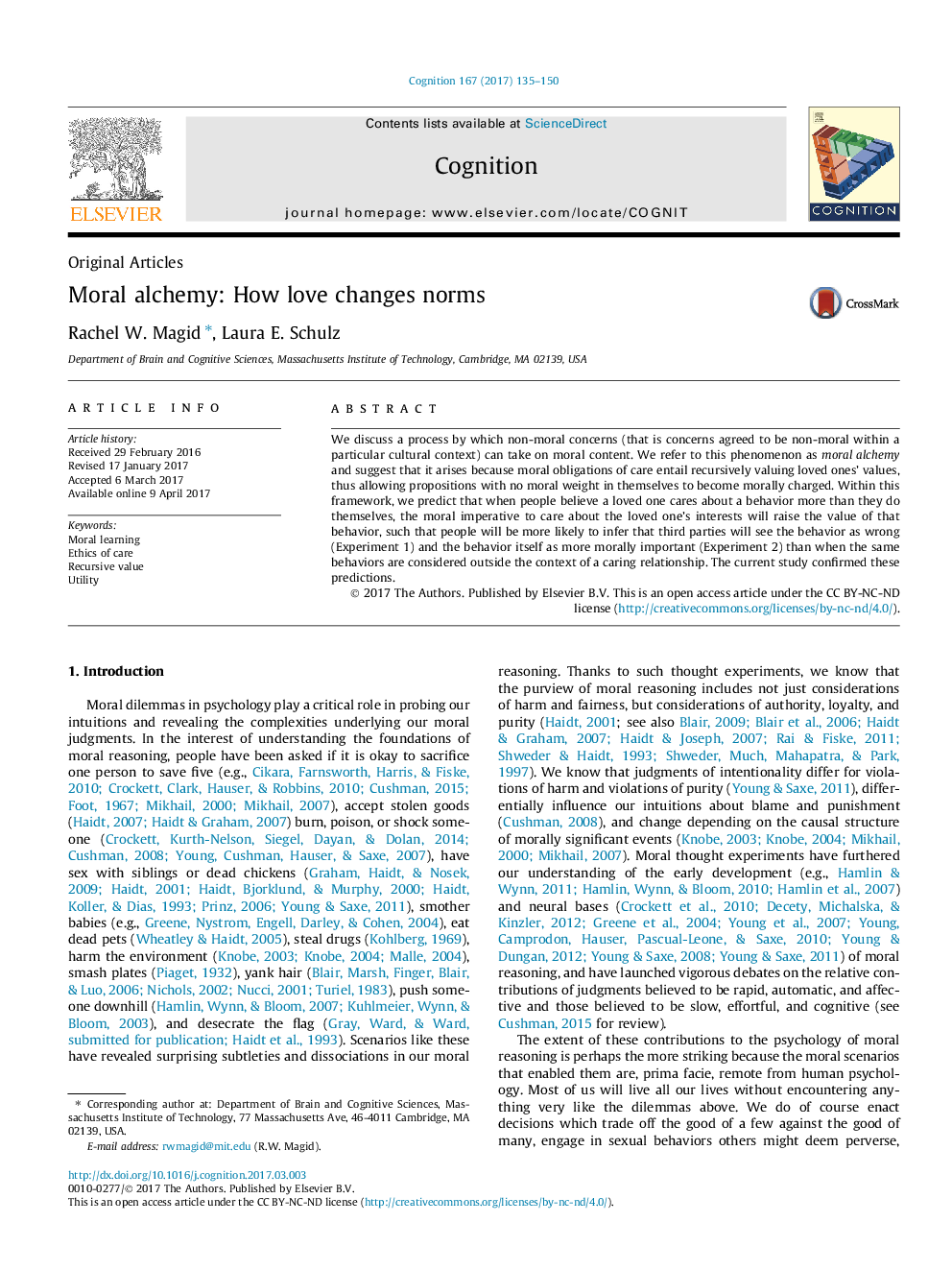| کد مقاله | کد نشریه | سال انتشار | مقاله انگلیسی | نسخه تمام متن |
|---|---|---|---|---|
| 5041485 | 1474100 | 2017 | 16 صفحه PDF | دانلود رایگان |
- Obligations of care entail recursively valuing loved ones' values.
- The obligation to care about a loved one's non-moral concerns might “moralize” non-moral concerns.
- To test this, participants rated how much they cared about a set of behaviors.
- Next they rated how much a close other or an acquaintance cared about different items from the set.
- On a third set of items, they rated “how most people” would judge the behavior.
- Experiment 1 looked at permissibility judgments.
- Experiment 2 looked at whether the behavior was seen as a norm, value, or moral.
- When the loved one cared more, participants' third party judgments were “moralized”.
We discuss a process by which non-moral concerns (that is concerns agreed to be non-moral within a particular cultural context) can take on moral content. We refer to this phenomenon as moral alchemy and suggest that it arises because moral obligations of care entail recursively valuing loved ones' values, thus allowing propositions with no moral weight in themselves to become morally charged. Within this framework, we predict that when people believe a loved one cares about a behavior more than they do themselves, the moral imperative to care about the loved one's interests will raise the value of that behavior, such that people will be more likely to infer that third parties will see the behavior as wrong (Experiment 1) and the behavior itself as more morally important (Experiment 2) than when the same behaviors are considered outside the context of a caring relationship. The current study confirmed these predictions.
Journal: Cognition - Volume 167, October 2017, Pages 135-150
